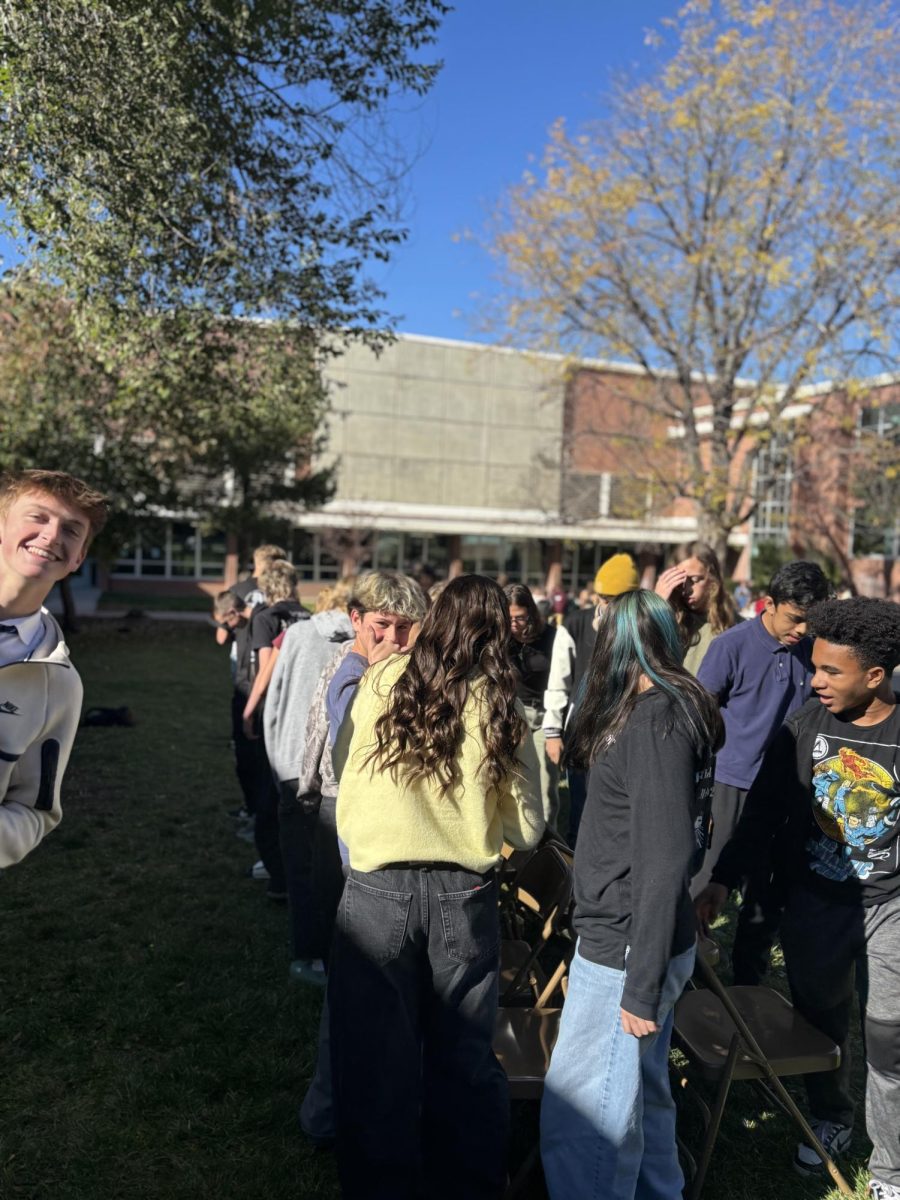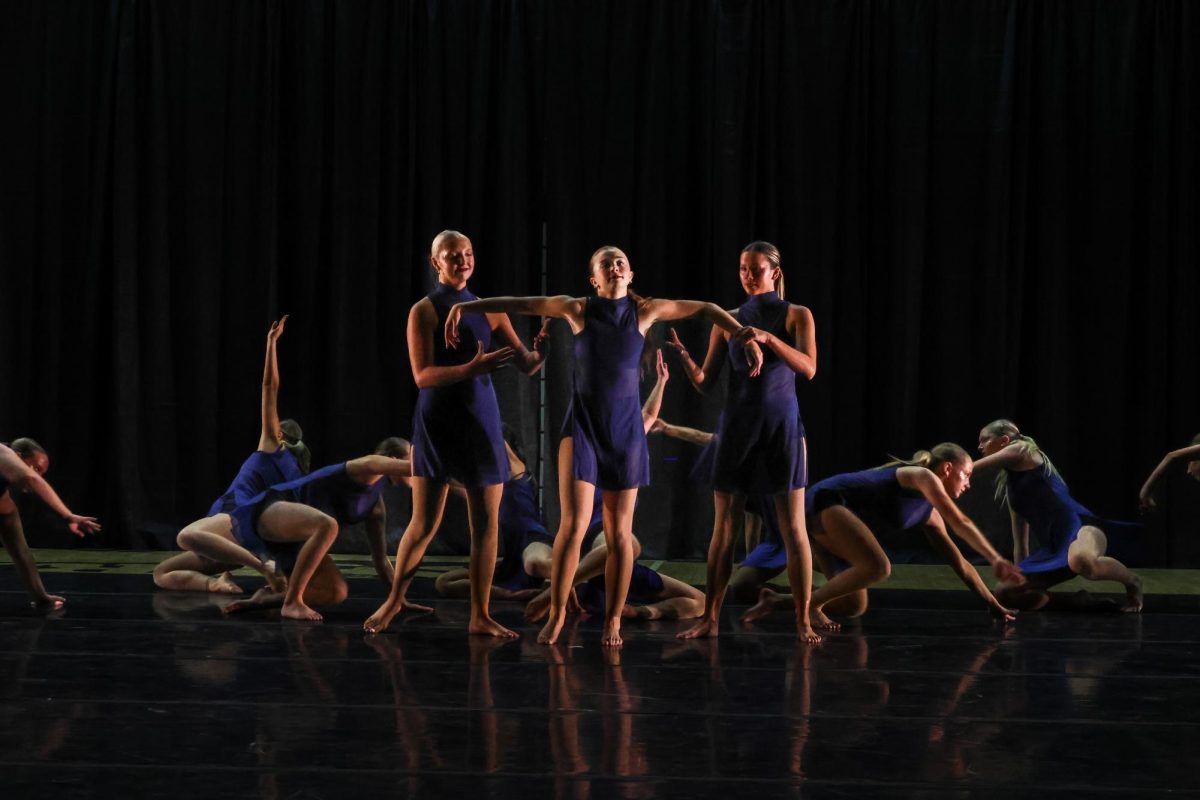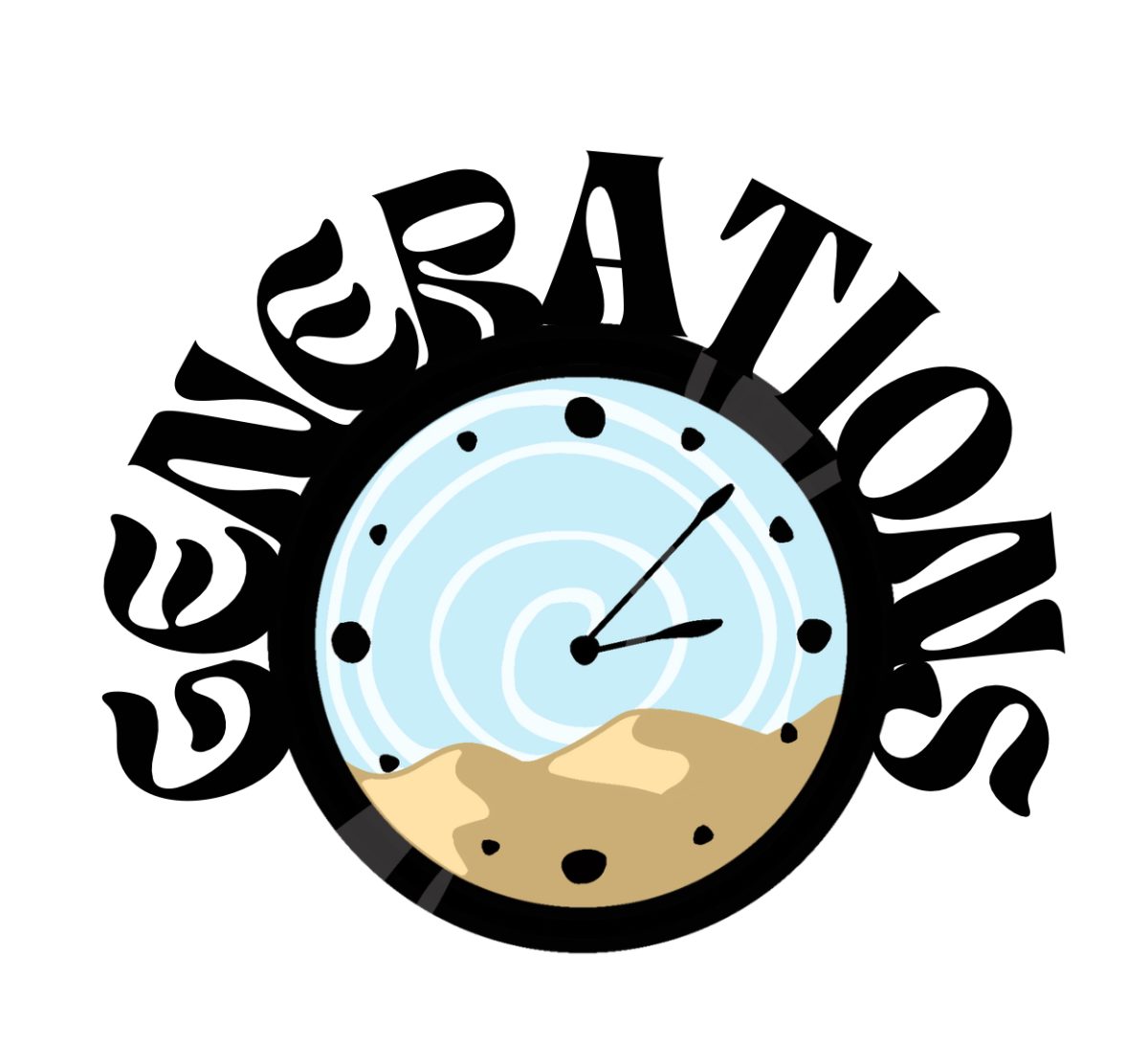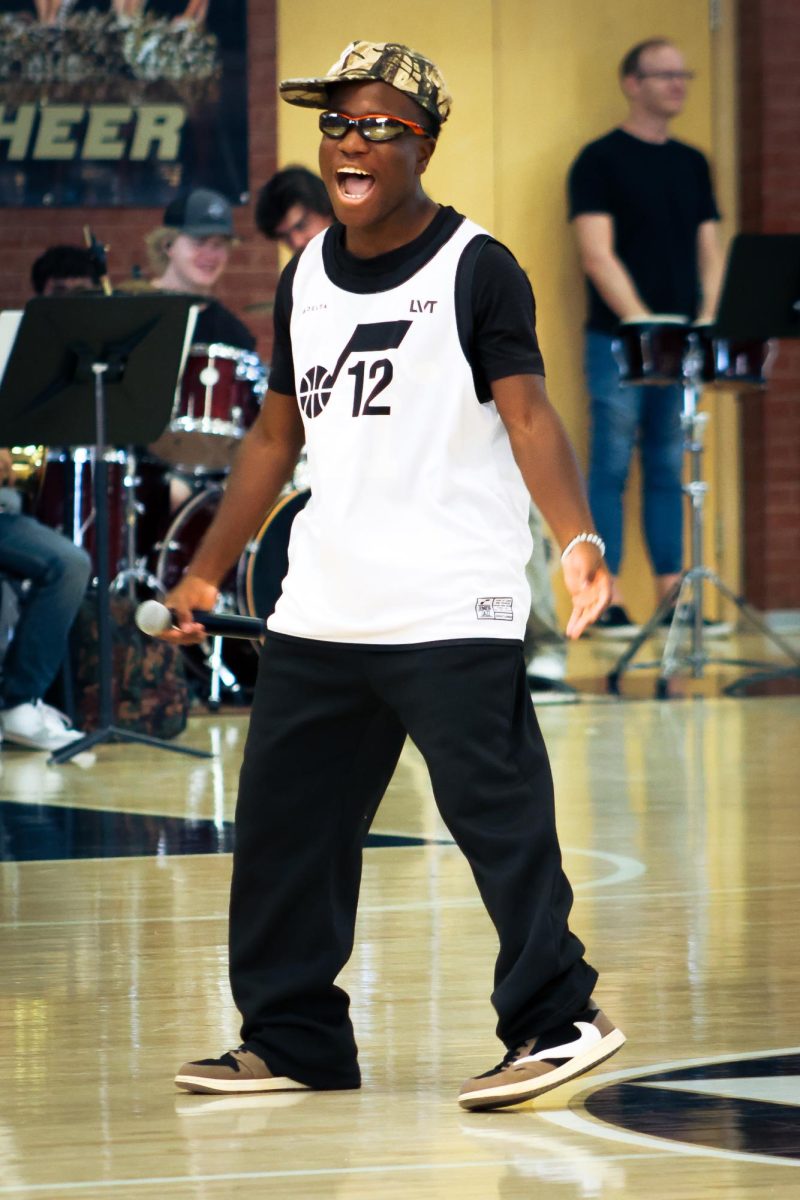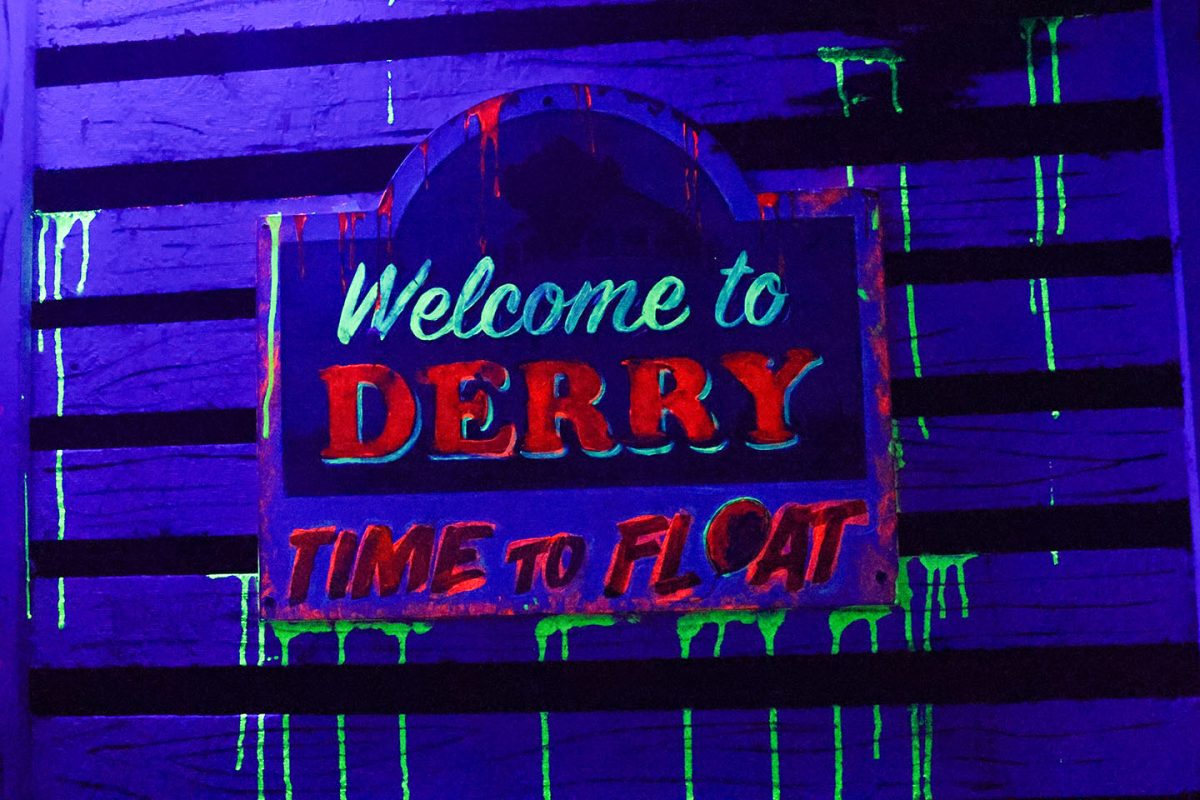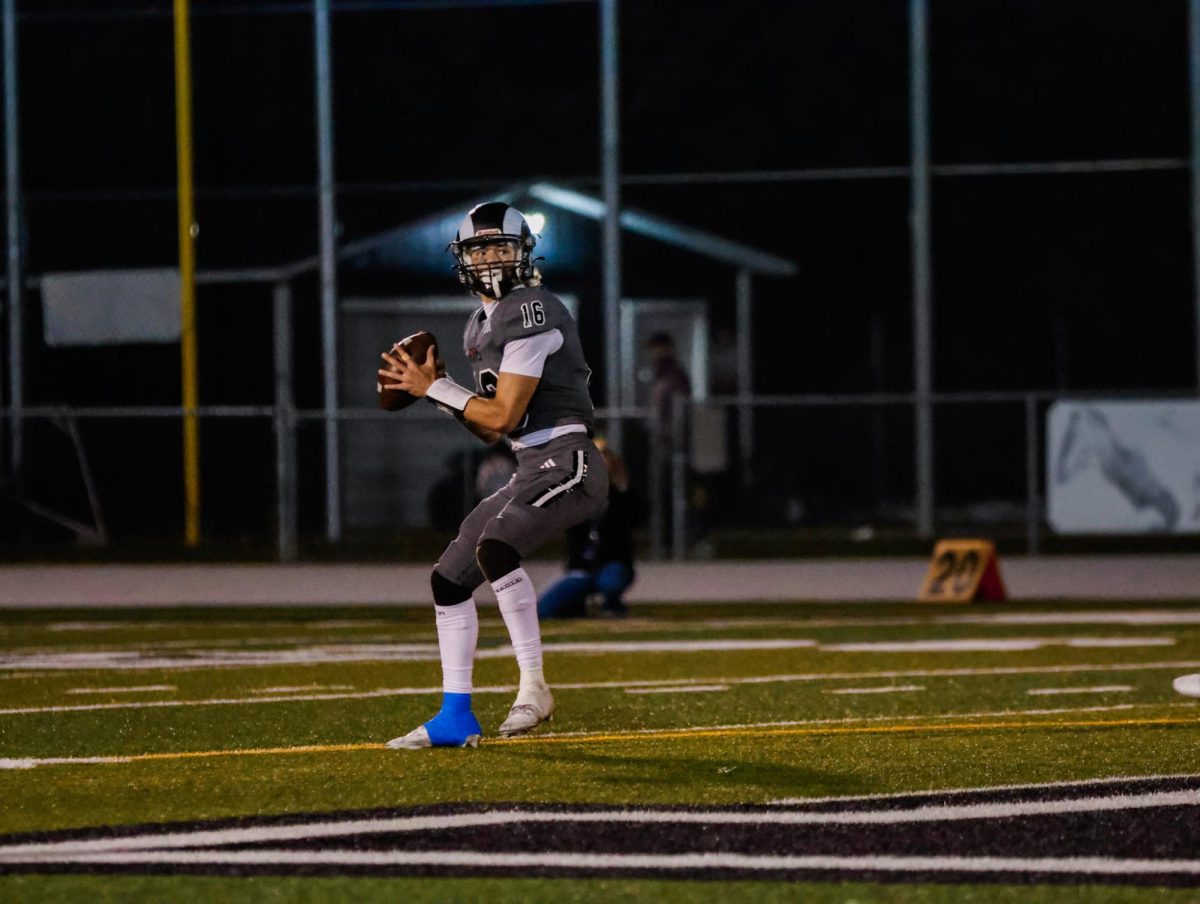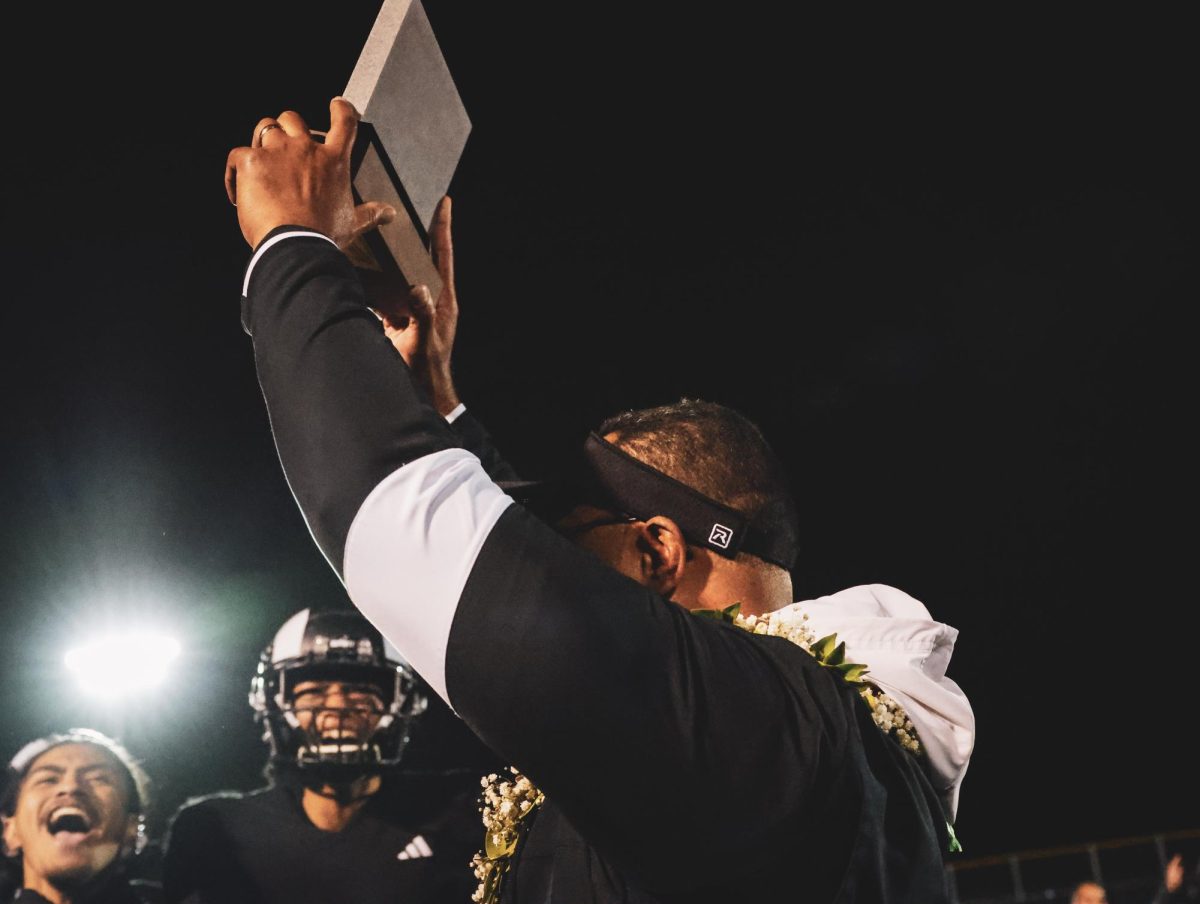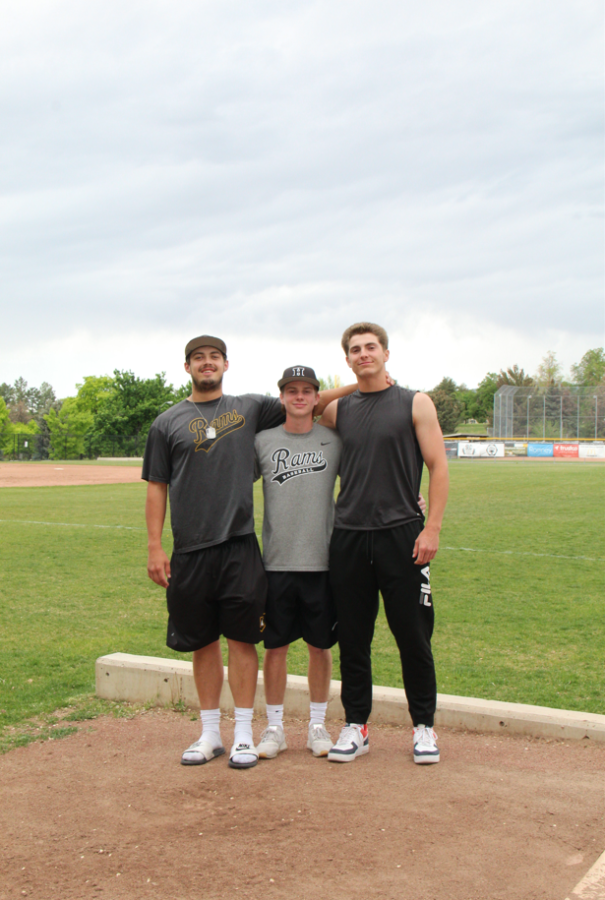Baseball Became A Way For Three Seniors To Honor A Lost Parent
Greg Harrold, Charlie Koelliker, and Alta Huntsman stand together in front of the baseball field.
June 2, 2022
Before every game of his senior season, Highland baseball player Greg Harrold spent a quiet moment designed for just him and his dad.
Harrold holds his dad’s military dog tags – his father was an Air Force pilot – and says a quiet prayer. A prayer he hopes only his dad can hear.
After losing his father earlier in the school year, Harrold played his final year of high school baseball without the person that shaped who he is today.
But he wasn’t alone. Two other players – Charlie Koelliker and Alta Huntsman, who are also seniors – have seen their stories converge with Harrold’s in one specific way: all three, at differing points during their high school journey, lost a parent.
All three played their final season at Highland without one of their biggest fans.
Danny Shwam, an assistant coach on Highland’s baseball team, is inspired by the work-ethic and kindness of each of these athletes.
“They are great teammates, and they have a real compassion for each other and other kids on the team,” Shwam said.
Three seniors. Three lost parents. One final baseball season to honor them all.
CALLIE HUNTSMAN
Alta Huntsman remembers his mom, Callie Huntsman, as one of those “alpha females,” and added that all her older brothers and family members looked up to her, just like he did.
“She was definitely the light of my life,” Huntsman said. “She was there for me, always.”
When she was younger, Callie Huntsman participated in a wide variety of sports, including softball, volleyball, basketball, and dance. Her involvement in athletics propelled Huntsman to pursue both dance, which he does as a student at SPA, and baseball.
Huntsman emphasized the amazing impact his mom had on who he is as a person.
“She taught me how to treat people how you want to be treated, to be sympathetic, and to be that person for other people,” Huntsman said.
Callie suffered an aortic aneurysm and after several post-surgery complications, Huntsman recalled getting a phone call in the middle of the night—a call to go see his mom.
“I took my family for granted in some ways, and her passing definitely showed me to cherish everyone and every moment you have, because it can be taken away so easily,” Huntsman said. “I don’t want to look back on times with people and regret things.”
After his mom’s passing, Huntsman took on new responsibilities at home to help with his siblings. At the same time, he noticed himself turning inwards and becoming less social, and ultimately recognized how much easier it would be to have his mom still by his side.
However, Huntsman also emphasized how important the lessons are that his mom and her memory continues to teach him.
“She would always say to do things for myself and not because of what other people say, but now I do things for her too,” Huntsman said. “Nobody knows who she was and how amazing she was, and I feel like it’s my responsibility to continue to praise her.”
Now a senior in high school, Huntsman thinks about his mom every day. When he is left alone with questions, he said he is hit with an answer that he feels is not his own, but his mom continuing to guide him as if she is whispering in his ear.
Huntsman’s senior season of baseball and the successes it has brought him has likewise impacted his outlook on the future and the role he knows his mom continues to have in his life.
“I think I’m going to a place that she’d be proud of, and that has calmed certain things and emotions inside of me,” Huntsman said. “I think she is definitely here right beside me.”
Huntsman sees his mom’s role on the baseball field too and, after years of her providing guidance on his form or going over drills with him, he remembers her every time he plays.
“When I play, I look to the outfield or along the fence,” Huntsman said. “She usually sat right there, in her car, and would watch the game.”
Huntsman has no doubt that, even during the hardest times, his mom has been there to watch over him—especially as his high school journey comes to a close.
DAVID KOELLIKER
Baseball is a family legacy for Charlie Koelliker, who has played baseball alongside both his brothers and his father throughout his entire life.
David, Charlie’s dad, played baseball at Highland, just like his son. David continued to play collegiate baseball at Snow College after graduating from Highland and then returned to Salt Lake to raise a family.
When Koelliker was about six years old, his dad received a brain cancer diagnosis. The cancer worsened when Koelliker was in 7th grade with the incidence of a stroke.
During the next several years, Koelliker said, he and the rest of his family cared for his dad, who was in a wheelchair, before he passed during his freshman year of high school.
Koelliker emphasized the crucial role his dad played in his baseball experience.
“He was always coaching me, and he was a great mentor,” Koelliker said. “Whenever I play baseball, I always think of my dad.”
At the same time, Koelliker recognized the hardship that the loss posed and continues to pose. Baseball, for him, is a crucial way to reconcile with the difficult time.
“Playing a sport is a great way to relieve stress and feel free,” Koelliker said. “During a hard time, it was really nice to have a sport to play with all my friends.”
When David played at Highland High, he donned the No. 20. When he passed, Koelliker’s brother was a senior wearing the same number, and the jersey was then passed down to Koelliker.
With Koelliker’s graduation this year, jersey No. 20 is being officially retired and no one else will ever wear it at Highland.
Every time he’s out on the field, Koelliker is reminded of his dad and everything he taught him. Whether it’s remembering his dad’s mentorship, the little league team he coached when Koelliker was young, or his continued impact, his dad is always there.
“Wearing the No. 20 makes me think of him, and that’s why I’m wearing it,” Koelliker said.
RICK HARROLD
Greg Harrold and his dad, Rick Harrold, have been inseparable for years, working through the good and bad times together as a team—just the two of them.
For even longer, Harrold’s dad has had a profound impact on his baseball journey.
“My dad got me into baseball when I was really young,” Harrold said. “I have pictures of him playing catch with me when I was two.”
Since then, Harrold has stuck with baseball and his dad’s persistent efforts to mentor him in all his successes. In addition to coaching him in little league, Harrold’s dad always strived to help him be the absolute best he could be.
On October 26th, 2021, Rick Harrold passed away. At that time, Harrold was in the process of deciding where to go to college and said that losing his dad was almost like hitting a wall.
“It was interesting to see how certain things in your life can impact you in a certain way, but no matter what, you have to keep doing what you have to do,” Harrold said. “And so, I just maintained my grades and just really started working at baseball.”
The years in high school made Harrold and his dad a tight unit, as they endured a significant number of difficulties together.
“For my entire high school career, ever since I was a freshman, I was basically homeless,” Harrold said. “There were times when I would sleep in hotels or on shop floors.”
Despite hitting this wall in experiencing such a heavy loss, Harrold emphasized the crucial role baseball has played for him, through all of it.
“I think my dad getting me into baseball, and baseball in general, really kept me going because it’s something that would make him proud,” Harrold said.
Harrold recognized how different it would be if his dad was still here, and of course wishes that he was, but said that he knows that—no matter what—his dad would be proud of him, and that is what continues to push him.
“Being able to overcome that he’s not here, and still trying to do the best that I can, is probably the thing that makes him the proudest,” Harrold said.
Harrold has several relatives who were members of the military, including his dad, who flew F-15’s in the US Air Force.
To continue to honor his dad and his memory, especially when it comes to baseball, Harrold wears the military “dog tags” every day.
Bouncing around his neck during every pitch, they witness every moment of Harrold’s senior year, and are a reminder of his dad’s influence in everything he does.
A BASEBALL LEGACY
For many people, baseball could simply be the “American” sport or an entertaining game to watch. Despite the truth that may exist behind those claims, it is also a hallmark of meaning and significance.
For Alta Huntsman, Charlie Koelliker, and Greg Harrold, it is much more than just a sport.
It is a legacy.
A memory preserved.
A way to honor those who they loved so deeply.
And, perhaps, it is the living proof that the person each of these admirable athletes are becoming will make their parents proud.
